Take all things into account when describing a scene so that the facial expressions, body language, and context all match the situation and the reactions that you, as the author, intend it to mean. Never assume readers know what you mean. They don't know what the author is thinking.
LONELINESS
| Facial Expression ● Unsmiling, or sad smile; expressionless ● Dull or watery eyes/a gaze that convey longing ● half-lidded eyes; a downcast gaze ● A lack of eye contact ● Downward tilt of head ● Slight frown Other Physical Behavior ● Avoids crowds or large events ● People watches, craving contact ● Wears comfort clothes ● Uses books, the Internet, TV to 'escape' and generate a feeling of interaction ● Rubbing shoulders through clothes, hugging shoulders | Other Physical Behavior continued ● Bringing feet up when sitting, scrunching up ● A desire to be included, wanted ●Expression crumples at people showing expression ● Pain in the chest ● False bravado that one is fine or happy as things are ● Tears, sadness, depression ● Gives an abnormal amount of love and attention to someone or something, trying to fill the void ● Overeating ● Binging in other ways (home shopping network, buying self 'treats' to perk up mood like shoes, candles, jewelry--items that aren't needed) ● Frequent phone calls to family or friends ● A willingness to talk to strangers just to interact ● A disinterest in appearance or an abnormal/obsessive interest in appearance ● Slumped shoulders, limp posture ● Adheres to routine; schedules things on certain days to look forward to it, keeps busy with ● Workaholic, filling the void with work ● Avoids social situations because a feeling of inadequacy ● Over friendliness, pushing self on people in hopes of being liked |
LOVE / ATTRACTION / FLIRTATION
Love Flirtatiousness/Falling in Love
entusiastiq.blogspot.com/facial-expressions entusiastiq.blogspot.com/facial-expressions
| Facial Expression When we feel longer-lasting love, our facial expression often resembles happiness: The zygomatic major muscle pulls the lip corners up, and there’s a tightening of the lower eyelid. But the distinct expression of love combines these muscle movements with a tilt of the head to the side. That’s a sign of intimacy and connection beyond just happiness. ● A genuine, soft smile ● Wrinkles around eyes, pouching of the lower lid ● Crinkling of the face with a genine smile ● Frequent eye contact, particularly when talking ● Eyes sparkle and are alert Other Physical Behavior - Love ● The whole body seems to smile frequently ● Gazing into each other’s eyes ● Shoulders leaning in, particularly when talking ● Paying attention to details ● Small gestures of physical contact, holding hands, brushing fingers across cheek, etc. ● Walking side by side; touching ● Feelings of warm fuzzies in the core ● Sitting together in quietness without needing to speak ● Finishing each other’s sentences | Facial Expression ● A coy, flirtatious smile. ● Turning head away to signal ‘I’m not interested in you,’ but simultaneously making eye contact. [That’s a universal display that reflects the ambivalence of flirtation] ● The zygomatic major muscle pulling the lip corners up, which also raises the cheeks slightly. ● Eyes are narrower than in a neutral state because the orbicularis oculi muscles around the eyes contract, suggesting feelings of happiness ● Staring, mouth slightly open ● Eyes wide Other Physical Behavior – Flirtation and Falling In Love ● Unsteady on feet ● Mouth going dry ; unable to speak ● Non-stop talking ● Shyness ● Throat clearing, swallowing ● Fluttering in stomach, feeling of nausea ● Tongue getting tangled, going speechless ● Nervous behaviors: shuffling feet ● Moistening lips ● Worrying over appearance ● Feelings of insecurity ● Mental fuzziness, lightheadedness ● Difficulty focusing on tasks ● Feeling faint ● Quick, shallow breathing ● Pulse racing ● Heart beating, banging, hammering ● Jangling nerves, jumpiness ● Tingling skin, limbs, a hyper-awareness of the body ● Weak knees or legs ● Exhibiting obsessive behavior ● Showing affection—stroking an arm, cheek; holding hands, kissing, hugging ● Swaying to bump against other person ● Electric feeling at accidental touches ● Exchanging personal effects ● Sitting together, legs touching, arm around shoulders ● Feeling or displaying jealousy at the attention from another toward your love interest |
LYING
| Lying isn’t exactly an emotion but it is something writers need to handle in novels. Not every lie involves emotions, but those that do cause special problems for the liar… and maybe the author. An attempt to hide a feeling or conceal an emotion at the moment it is felt could be betrayed in words, but except for a slip of the tongue, it usually isn’t. But it can be detected in facial expression. Mark Bouton, an FBI agent for 30 years and author of "How to Spot Lies Like the FBI” gives some practical hints on how to tell when someone is lying. Body Language ● Eyes dart back and forth. "This is a physiological reaction to him feeling uncomfortable or trapped by your questions that he doesn't want to answer," Bouton says. | Body Language Continued ● Eyes blink rapidly, five or six times in rapid succession. "A person will ordinarily blink about five or six times a minute, or once every 10 or 12 seconds," Bouton says. "When stressed — for instance, when someone knows he's lying — he may blink five or six times in rapid succession." ● Closing eyes for more than one second at a time. ● Right landed people usually look to the right when they are trying to remember what they saw. "When you ask a normal, right-handed person about something he's supposed to have seen, if he looks upward and to his left, he's truly accessing his memory of the incident," ● Right landed people usually look directly to the right when lying about something they heard. ● Right handed people look down to the right when lying about smells or sensations. "His eyes will shift downward and to his left if he's going to tell you his memory of a smell or touch or sensation, such as a cold draft or a terrible odor," Bouton explains. "But his eyes will shift down and to his right if he's going to lie." ● Bunched skin beneath and wrinkles beside the eyes indicate a real smile ●Face touching ● Excessive sweating ● Pursed lips Quoting Mark Bouton Authors: Rachel Gillett and Samantha Lee Jan 11, 2019 https://www.businessinsider.com/how-to-tell-someones-lying-by-watching-their-face-2016-1#take-note-of-what-youre-asking-them-5 |
PAIN
| Physical Pain is the body’s “dashboard light” when something is wrong. It is the distressing feeling often caused by intense or damaging stimuli, which can be both physical and emotional. Physical responses can vary depending on which kind of pain is involved. In medical diagnosis, pain is regarded as a symptom of an underlying condition. Facial Expression When we feel pain, our facial muscles move in ways that contract the face and protect us from harm. ● In the upper half of the face, the orbicularis oculi muscles around the eyes contract, closing the eyes tightly. Eyes can also squeeze shut ● The corrugator muscle lowers the eyebrows; deep frown with lines between eyes ● Lips tighten and press upwards. ● If eyes open, they appear glassy or glazed over ● Pale or Blotchy skin ● Clenched teeth entusiastiq.blogspot.com/facial-expressions | Other Physical Behavior – Physical Pain ● Probing the pained area and wincing ● Hobbling about, taking tentative steps ● Tightness in the expression ● Shuddering breaths ● Taking a deep breath before moving ● Tight muscles, rigidness ● Expelling a grunt or pained hiss at exertion ● Asking for aid (to move, to get something, to call for help) ● Trying to sleep it off ● Short-temperedness ● Depression ● Gripping onto people or nearby objects for additional support ● Arms wrapped around middle ● Rocking back and forth Emotional Emotional pain can be described as heart-ache which results from a painful experience, such as the loss of a loved one. It can stem from depression, anxiety, disappointment, fear or guilt, and tends to worsen when you replay and relive painful, traumatic events that occurred in the past. Other Physical Behavior - Emotional Physical behavior may resemble other emotions such as disappointment, empathy, loneliness, or sadness. ● Clenched stomach ● Tight chest ● Hearing one's own heartbeat in ears ● A throbbing pain in chest ● Speechlessness ● Mouth opening in shock, gaping ● Shaking head in denial ● Tears, sobbing, wailing ● A clogged throat or thickness in throat ● Weariness; Numbness; ● Weak knees ● Shaking, trembling |
| Other Physical Behavior – Physical Pain\ ● Rubbing at the offending spot ● Nausea ● Dizziness ● Fainting/blacking out ● Buckling knees ● Hallucinations ● Racing heart ● Pulsing blood ● Shaking fingers; Trembling limbs ● Pale or Blotchy skin ● Feeling cold or feverish ● Dry mouth ● Gasping for breath ● Screaming or crying; Moaning/groaning ● Sweating ● Biting lip | ● Unable to articulate self to others ● Depression ● Flight response ● Unsteady of feet; stumbling ● Falling into a chair or slumping to the floor ● An inability to eat or sleep ● Obsessing on the person/event that causes the pain ●Anger; lashing out at those around you ● Wanting to be alone; avoiding others ● Closed body language: pulling knees to chest, curling up, slumping over chest, etc ● Kneading/rubbing or pressing at chest ● Loss of breath; ● Hyperventilation ● Head hanging down, hair in face ● Unkempt appearance ● Not caring about other's needs |
RELIEF
| Facial Expression ● Pursed mouth, ● Eyes turn up, looking heavenward ● Wide eyes or lowered lids ● Slightly raised eyebrows ● A slow smile Other Physical Behavior ● Hand covering mouth or eyes ● Back or palm of hand to forehead ● Letting out a long breath; whew! ● Shaking head and closing eyes ● Dry mouth ● Repeating self, talking too much ● A need to sit down and let the relief sink in | ● Hands tremor ● Reaching out to another for comfort wanting to be held ● Body slumping, losing stiff posture ● Shaky laughter ● Falling back into a chair; sagging against a wall ● Ask/demand someone to repeat good news ● Shaky knees, legs ● Struggle to speak, find the right words ● Crying/calling out in release ● Touching face, hair ● Rocking back and forth ● Mouth gaping in shock ● A compulsion to thank others involved ● Pressing hands to stomach, over heart ● Head bowing down briefly ● Compulsive nodding ● Letting head fall back ● Uttering a soft curse or thanking God |
RELUCTANCE
| You feel reluctance when you have to do something that you don’t feel like doing. For instance, when you remember you still have to do the dishes, when you have to spend money on a necessary car repair, or when friends urge you to tell an embarrassing story. Although these routine examples are quite different, they follow the same principle: there is an activity that is unpleasant, but that you have to engage in for reasons that are more important than the displeasure. The opposite is also possible; sometimes we refrain from doing something that is pleasant, but we know we shouldn’t do. Facial Expression ● Pressing lips together ● Gritting teeth ● A grimace, a pained look ● Eyebrows squeeze together, a focused inward look of discomfort ● Eyes glance around uneasily ● The head pulling back as the shoulders push forward. ● A faked smile, filled with discomfort ● Biting lips Facial expression may look similar to guilt. Other Physical Behavior ● Hesitation in speech and in movement ● Tense arms, shoulders, or face. ● Pressing a hand to stomach ● A hard, obvious swallow ● Wetting lips and giving a jerky nod of assent ● Tension in arms, shoulders, face ● Biting nails ● Pinching the bridge of the nose and squeezing eyes tight ● Tapping a fist against the lip or other repetitive behaviors | Other Physical Behavior - continued ● Reaching out slowly to assist or take something ● Experiencing a moral dilemma ● Taking a deep breath before acting ●Backing away from a situation, avoiding notice ● Shaking hands, nervous twitching ●· Hands half curling into fists and then straightening ● Stuttering, stammering ● Making excuses, lying ● Holding a hand up, warding someone off ●Asking for someone else to help/ act instead ● A pained or look of guilt ● Hand fluttering to lips or neck, as if to cover ● General Fidgeting: running hand through hair distractedly, pacing, looking for an exit ● Trying to brush off the situation or pretend things are fine to avoid responsibility ● Jumpiness ● Trying to change the topic, divert attention, etc to not become involved ● Citing a list of things to prove why they are too busy, not well enough equipped to handle the task or is the wrong person to ask ● Closed body language; hands up in front |
RESENTMENT
| Facial Expression Most often resentment causes a pinched and bitter facial expression. Unlike many emotions, resentment does not have physical tags exclusively related to it that telegraph when a person is feeling this emotion. However, physical expressions associated with related emotions such as anger and envy may be exhibited, such as furrowed brows or bared teeth. ● Narrowed eyes; glaring eyes or refusing to make eye contact ● Frown ● Lips compressed and turned down ● Bared teeth ● Pouting ● Scrunched face Other Physical Behavior ●·Crossing arms over chest ●·Hunched shoulders, pouting ●·Spinning away in a huff ●·Lifting your chin up sharply ●·Refusing to apologize, or giving a forced apology ● Rolling eyes ●·Rudeness ●·Complaining to others ●·Mumbling, muttering, cursing ●·Sulking, moping, whining | Other Physical Behavior - continued ●·A dark look, giving someone the 'stink eye' ●·Tension in neck, shoulders, arms ●·Sharp movements: stalking off, stomping up the stairs, swinging arms determinedly to show defiance ●·Displaying anger such as giving someone a shove, breaking something ●·Shouting ●·Locking oneself into a bedroom or bathroom, refusing to come out ●·Refusing to speak to someone or interact with others ●·Refusing to eat ●·Showing defiance through other means (doing or not doing something) ●·Purposely trying to push people's hot buttons to get them upset or ruin their time ●·Kicking at the table when sitting, thumping foot against a table leg or chair on purpose to annoy others ●·Having vengeful thoughts towards others ●·Angry tears ●·Accusing people (parents, teachers, a girlfriend/boyfriend, etc) of not loving them, or favoring someone else above them. ●·A desire to spoil other peoples moods ●·Gossip-mongering, trying to damage someone's reputation ●·Cattiness ●·Purposeful ignoring |
RESIGNATION
| Resignation is the state of surrendering because one must, often with little or no resistance. It is a kind of acceptance of the state of things and hoping the outcome will be favorable but accepting that it may not be. In a way, it’s giving up hope. Facial Expression ● Loose jaw ● Lips slightly compressed and turned down at one corner or both ●Eyebrows pulled into a slight frown in center and turned up at sides ● Wrinkled forehead ● A dimming gaze; glazed eyes ● Trembling chin ● Bunching up bottom lip, then loosening Facial expression much like sadness. Other Physical Behavior ● Sighing dejectedly; A long exhale ● Slumped or sagging shoulders ● Blank features ● Stooped posture ● Shuffling footsteps ● Small steps ● Tears ● A monotone voice ● Becoming less verbal over time ● Answering with a small nod ● A half-hearted shrug ● Expression leaves face ● Looking down or away ● A mirthless smile ● Muttering, mumbling ● Movements are stilled ● Head in hands, silent tears ● Propping cheek up with fist | Other Physical Behavior - continued ● Being at a loss for words ●A shake of the head ● Head tipping back on neck to look skyward ● 'Falling' into a seat ● Agreeing without caring ● Rubbing hand through the hair in distraction ● Clasping hands together ● Leaning forward, elbows on knees ● Limp hands & arms ● Staring off at nothing ● Head hanging ●Feeling directionless ● Becoming less verbal; words trickle off ● General disinterest in everything ● Non responsive or slowed response to stimulus (loud noises, activity, a person speaking) ● A desire to sleep or tune out ● Depressed hunger and thirst |
SADNESS / GRIEF
| Sadness is a transient, or short-lived, emotional state generally associated with with negative moods and unhappy feelings. Sadness is considered to be one of the basic human emotions and it is a natural response to those situations which involve psychological, emotional, and/or physical pain or loss. entusiastiq.blogspot.com/facial-expressions Sadness is characterized by oblique eyebrows, where the corrugator muscles pull the eyebrows in, but the inner part of the frontalis muscle pulls them up. There’s also a little pouching in the inner part of the forehead, and people will often look down. Plus, the corners of the lips are pulled straight down, giving the mouth a curved look. The expression of sadness is often confused with shame, and it shares the oblique eyebrow muscle movements of compassion. | Facial Expression ● Eyebrows frowning, wrinkled forehead ● A little pouching in the inner part of the forehead ● Eyes half-lidded, looking down ● Teary eyes; eyes red and swollen from crying ● Downturned lips Other Physical Behavior ● Tears pouring, dripping, coursing ● Makeup running ●·Splotchy skin● Stiff eyelids ●·Aching chest ● Scratchy throat; soreness in the throat, lungs ● Hyperventilating/can't catch breath ● Fainting ● World seems slow down ● Heaviness in chest, limbs ●·Wincing ●·Voice breaking; tearful voice ● Heart that is breaking, aching ● Difficulty responding to questions, interacting with people ● Staring down at hands Other Physical Behavior – Longer-term Grief ● Constant ache ● Uncontrollable crying ● Lashing out at others ● Addictive behaviors ● Premature aging: wrinkles, tired eyes, gray/white hair ● Weight loss or gain ● Sickness; Lethargy ● Throwing oneself into activities ● Losing interest in usual hobbies ● Failing grades at school, lack of success ● Isolation; drops previous activities, ● Inward focus; forgetful ● Desire to not be alone or to be left alone ● Compulsive actions: cleaning, etc. ● Desire to live in the past ● Suicidal thoughts ● Loss of appetite ● Inability to focus; Aversion to noise, crowds ● Over-sensitive to jokes, comments ● Bulky clothes, unkempt appearance |
SCARCASM / VERBAL DISRESPECT
| Sarcasm is a thinly veiled attempt to disguise feelings of anger, fear, or hurt. It can be a means of diminishing feelings of vulnerability that may be experienced in the willingness to acknowledge the underlying feelings. Facial Expression ● Pursing lips; A smirk or sneer ● Tilted head ● A deliberately raised eyebrow ● Eyes averted; rolling eyes or looking up ●A bemused smile (not all sarcasm is biting) ● Raising the chin so to create impression of looking down ● Narrowed eyes, eyes glittering with a hard or unkind amusement Other Physical Behavior ● A toss of the head ● Stiffening posture ● Arms crossing the chest ● Cover face with hand ● Asking questions that imply you already know the answer or are asking loaded questions ● Choosing words that cut/degrade/diminish ●Sharing an unkind look with others, drawing attention to the object of sarcasm ● A stance that conveys haughtiness/power ● A dismissive hand wave, not important | Other Physical Behavior - continued ● Tossing out a rapid, snappy response ● A languid hand gesture that suggests you want the other person to speak or take the floor when it's clear you think they'll only prove their idiocy ● Encouraging someone to please add their thoughts in a tone that suggests they have nothing worthy to add ● Adding a low blow or derogatory comment to 'slam dunk the moment' ● Muttering or belittling under the breath, just enough to be heard ● Raising hands in the 'I give up gesture' and backing away, but with a smile that suggests you still feel they are in the wrong but it isn't worth the battle ● Shaking the head while another is speaking ● A loud smacking of the lips or tsk-ing in a condescending manner ● Verbally agreement infused with impatience or rudeness "Okay, sure. Whatever you say." ● Parroting someone else's words, but in such a way as to make them sound ridiculous (and therefore the idea) ● Making someone the center of attention in a negative way ● Belittling one's ideas, words or viewpoint ● Raising the voice to draw attention to one's words |
SATISFACTION
| Right now, things are looking pretty good! Facial Expression ● Lifted Chin ● Tilted head ● A smirk, a twisting smile; Confident grin ●·A raised eyebrow and a 'See?' look ● Relaxed features ●An expression of supreme confidence (glow) Other Physical Behavior ●·Crossing the arms over chest ●·A sleek walk that draws the eye (catlike, deliberate) ● Hands behind head and leaning back (sitting) ●·Apt dialogue that sums up the situation perfectly, a biting comment ●·Justified possessiveness ●·Telling someone, 'I told you so." | Other Physical Behavior - continued ●·Gossipy behavior at another's downfall (talking loud enough for them to hear, faking sympathy or empathy but secretly running them down, enjoying the fall from grace) ●·Shoulders back, head held high, straight posture ●·Taking deep breaths, savouring the moment ●Faking surprise or shock to remind someone you have the upper hand (rubbing it in) ●Tutting, patting another's hand, telling them it's all right, that you will take care of everything ●·Bragging ●·Jeering, taunting ●·A hand casually anchored on the hip ●Stretching arms out wide and taking a deep breath, relaxed, and in control of the moment ●·A hyper awareness of others, to see how your actions and words affect them ●·A deep, gratifying sigh ●·A lightness in the chest, tingling ●·Warmth spreading through body ●·Happiness over work done well, euphoria ●·Whistling, humming, contentment ●·Self-congratulations ●·Uncharacteristically generous/indulgent to others as a result of feeling gratification ●·A direct manner (eye contact, strength in voice, controlling the conversation) ●·Exhibiting power through confidence and alpha-male/female body language in group settings |
SHYNESS
| Shyness (also called diffidence) is the feeling of apprehension, lack of comfort, or awkwardness especially when a person is around other people, particularly in new situations or with unfamiliar people. A shy person may simply opt to avoid these situations. The defining characteristic of shyness is a largely ego-driven fear of what other people will think of a person's behavior; a fear of negative reactions. | Stronger forms of shyness can be referred to as social anxiety or social phobia. In children, shyness may result from un-familiarity and not knowing what to expect. Current research suggests the behavioral repertoire is orchestrated by a specific circuit of neurons in the brain, and it is also strongly influenced by parenting practices and life experiences. Facial Expression ● Eyelids lowered; no direct eye contact ● Lowered head ● Half-smile ● May try to hide face Other Physical Behavior ●Cling to something familiar such as another person; hiding behind them ● Hide face ● Leaving as soon as possible ● General fidgeting ● Cling to something familiar |
SOMBERNESS
| Facial Expression ● Unsmiling; lips together but not pressed ● Dark, serious eyes ● Eyes glazed; far away look; unfocused ● Face lacking energy or interest; pensive ● May resemble sadness with eyebrows frowning, wrinkled forehead and a little pouching in the inner part of the forehead Other Physical Behavior ● Quiet, unmoving ● Soft spoken, devoid of emotion, deadpan, monotone voice ● A darker or weighted outlook, negativity ● Hands folded in lap ● Flaccid yet unwelcoming (closed) body language ● A tendency to look down ● A thoughtful expression, thinking before speaking ● Dark or heavy observations ● A bleak mood that affects others, lessens energy, brings people 'down' ● Melancholy, gloomy ● Loose posture ● Unstressed, accepting | Other Physical Behavior - continued ● A slow walk, seeming unaware or introspective ● Personality is subdued ● Humorless ● Non reactive to stimulus (laughter, excitement, activities) going on around them ● A desire to be alone ● Drab / plain clothing, lack of color ● Difficult to engage in conversation ● Sedate mannerisms, minimal or economical movement ● Non talkative; unresponsive; distracted ● Mediocre observations, accepting viewpoint of a negative outcome or realization ● Uninterested in usual hobbies or entertainments |
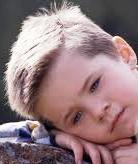

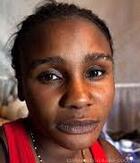
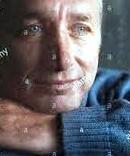
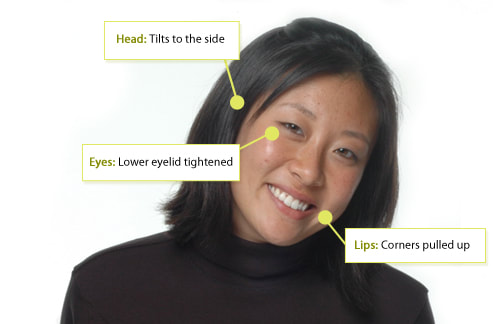
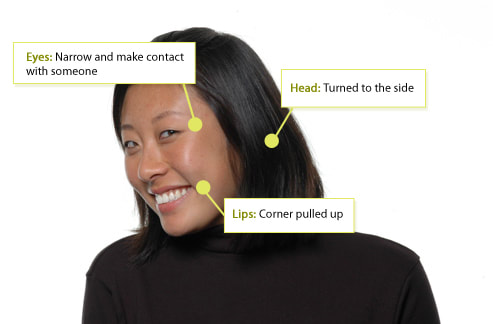
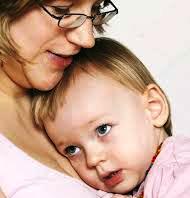
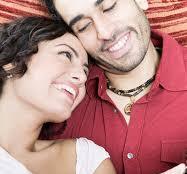
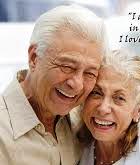
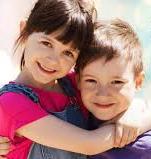
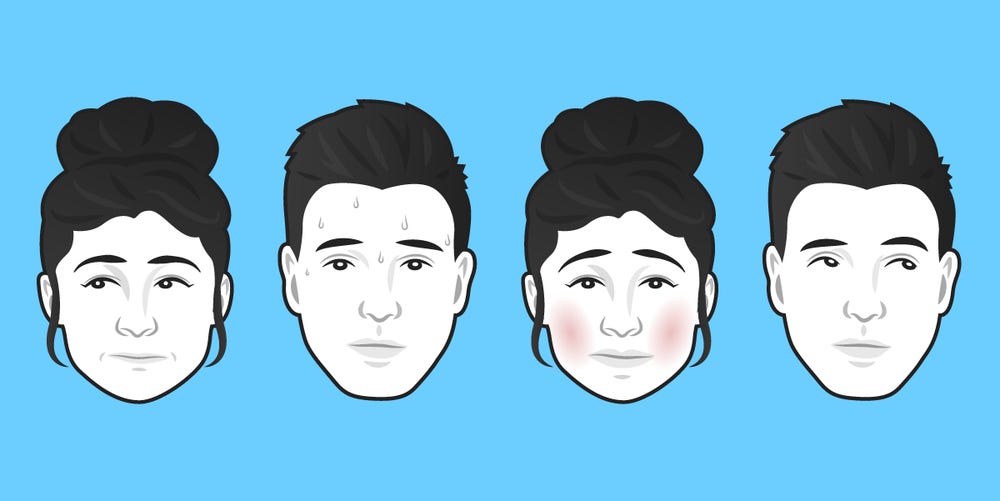
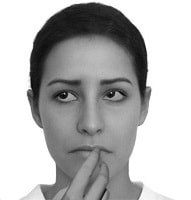
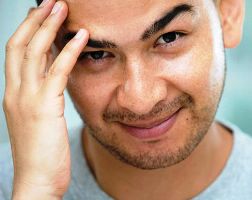
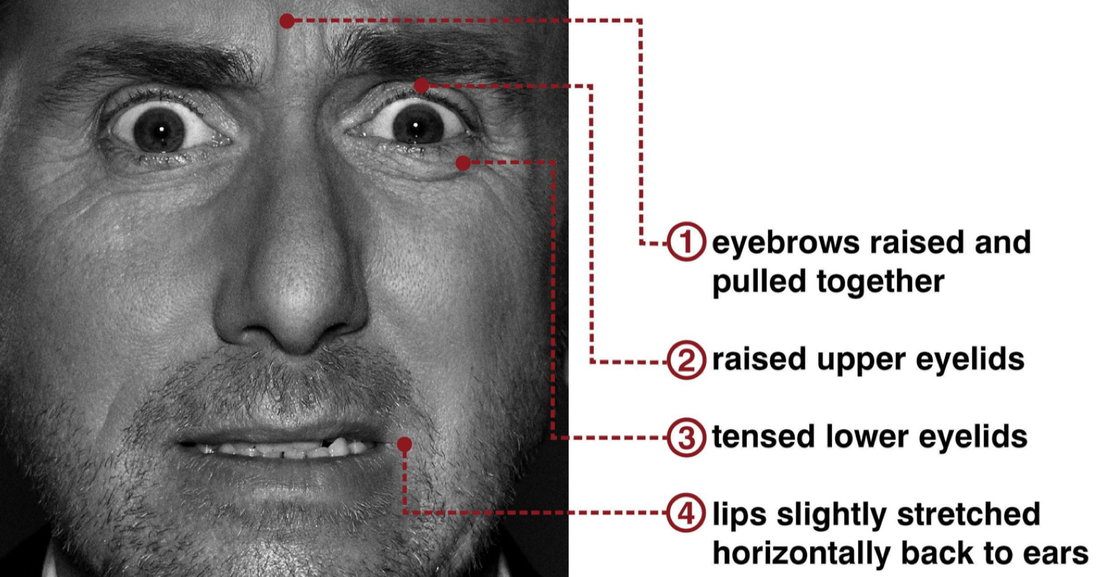
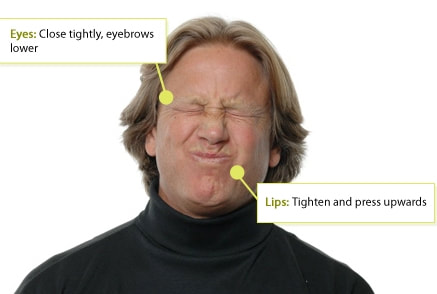

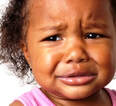
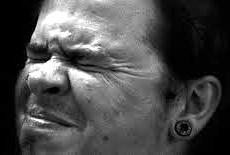
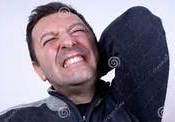

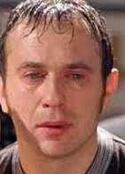



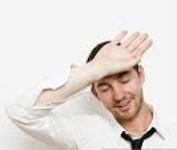
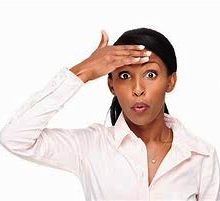



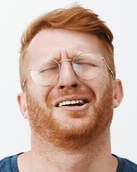
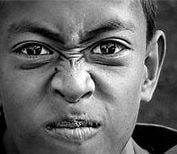



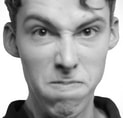
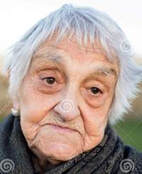
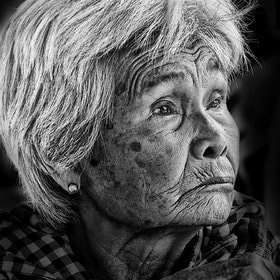
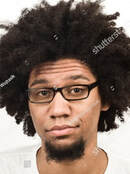

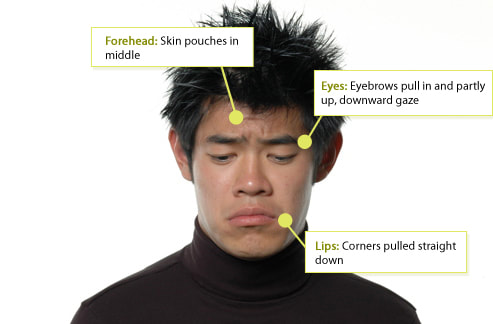
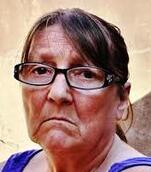
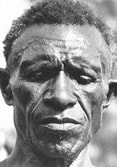



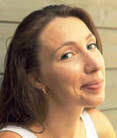
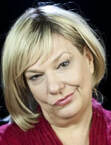



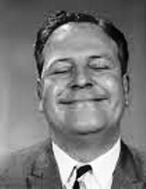
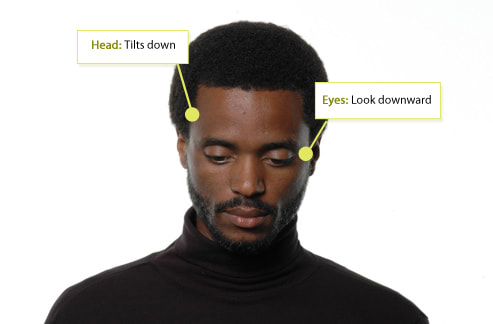



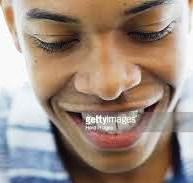
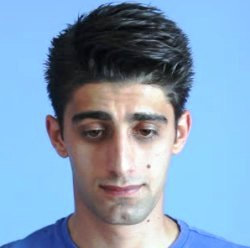
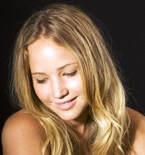
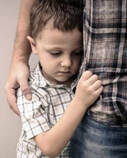


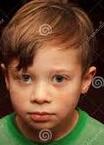

 RSS Feed
RSS Feed